If you’ve been following this series, you may know I’m now 6 days in to intense revisions on the novel manuscript I printed off Friday.
- Tuesday, I shared Novel Revision Strategies: A Day’s Work in Pictures, which looked cheery and organized. We had waffles. Our cute chickie syrup pitcher cheered me on.
- Monday held more hint of the hard work of editing, as Novel Revision Strategies: Printing for Read-Through listed specific techniques.
Am I still that organized and cheery? Ugh! 6 days-in (full, long days of reading, marking and changing), I’m tired. No matter how organized, revisions are hard work.
I have made it about halfway through the manuscript — having accomplished close-reads in some places and more general mark-ups in others. Like shoveling heavy snow, the deeper I go, the heavier the lifting seems to get — but there have been some remarkably simple fixes, too.
In continuing to share the process, here are the kinds of issues I’ve found in this stage of the draft, and some solutions.
- Easy: in at least half a dozen places, I found a scene that had been pasted more than one place in the draft. It’s an easy fix: I decide which location is best and delete the duplicate (ms. is shorter, yay!). If you use Scrivener, this should be easy to notice/avoid as you can recognize the same first line repeating on more than 1 notecard or binder label.
- Scary: there’s nothing worse than knowing you wrote a scene, but it’s not there when you go to read your draft. When you write and revise in short bursts over months, especially if you use whatever media is at hand (shout out to the writer who scribbled a scene on her arm while sitting in traffic), it is scarily easy for this to happen. Of the 3 scenes I am missing, I’m looking in an old draft for one, because I know it was there before. I found another in my email folder because it was a scene I’d written using Dragon Dictation, which transcribed and emailed it to me. For whatever else is missing, I’ll be scouring notebooks to see if it was handwritten somewhere, or will wait until the next draft and rewrite from memory.
- Whiny: it was hard not to lose confidence re-reading certain early-draft sections which I find whiny — so full of psychological explanation. I mentioned the strategy of highlighting my favorite wording — this made it easier to ignore the whiny and instead focus on the better, newer writing, which convey those emotions more authentically in scene. Still cringe at the whining, though. Ugh.
- Wrong: using the task list I mentioned Tuesday, I’ve been tracking facts to resolve. For example, since the story takes place before and after 9/11, I can’t ignore the impact that event would have had, despite the story not being about 9/11. A couple quick choices and some research let me edit all of those details at once. The other way story details are “wrong” is where I’ve changed details as the story has grown. As with “whiny,” I mark any wording worth keeping, then scrap the older versions. Using a “search” function can help locate the old facts to edit out (see the comment about “horse” below — a search that fixed a change in backstory).
- Careless: I’ve gotten good at “turning off that internal editor” when drafting which leaves me with lots of conventions flaws to fix, like having no quotation marks on dialogue. In many places, I literally allowed ideas to come out in comma-strung lists, to avoid having to edit out wordiness later. Good news: Spell-check quickly fixed all the issues with uncapitalized names and unpunctuated sentences. Moving forward, I only have to tidy the harder edits on scenes that will be kept. With dialogue, I draft whole conversations, but delete out all lines except the ones with power. Knowing I have at least 1 more revision after this, I don’t have to polish everything.
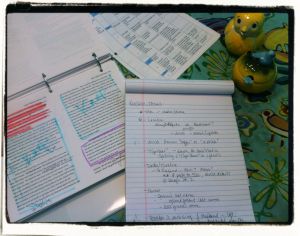 One piece of advice I’m trying to keep in mind is to not be too rash with changes. I’m marking certain text to “keep for now,” already anticipating leaving some decisions until the next batch of revision.
One piece of advice I’m trying to keep in mind is to not be too rash with changes. I’m marking certain text to “keep for now,” already anticipating leaving some decisions until the next batch of revision.
For more on common novel errors:
- Jane Friedman: 13 Most Common Errors on a Novel’s First Page
- Submission advice: Pirate’s Alley Faulker Award for Fiction
- Superhero Nation: 5 Common Mistakes for First Time Novelists
- Chuck Sambuchino: 7 Reasons Agents Stop Reading Your First Chapter
* * * * *
How About You?
Readers in prior posts have shared their own revision process and challenges. Are you revising as well?
My biggest challenge is trying to get it done — I know what I need to do, but can’t get over how much time it takes to get through it. Can you relate to that — or what is your biggest challenge or fear?
Best wishes to you, wherever you are in the writing, revising or publication process.
* * * * *
If you like this blog, be sure to subscribe using WordPress’s +follow option, or via email or RSS feed. I love to connect with like-minded readers and writers!
Recent Posts:
- Friday Links for Writers: 07.05.13
- Living With Books 08: Life, Liberty & the Pursuit of Books
- Motivated to Write: 12 Tools to Get Writing Now

- Tuesday Writes: Camping with Friends
- My Summer Reading List 2013
Posts in Novel Revision series:

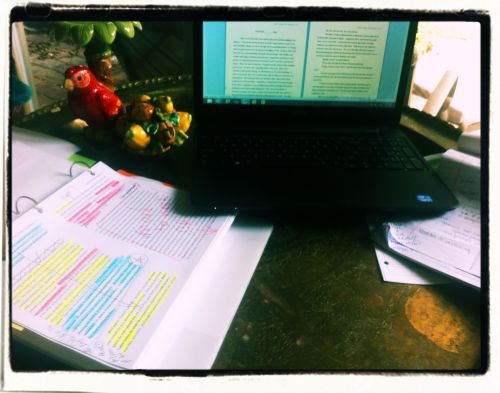






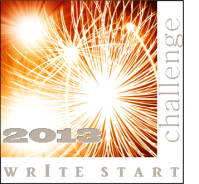
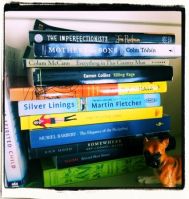







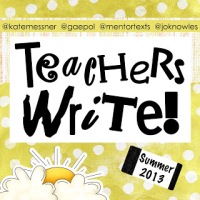
rope, and making rope were once way too overused. important to the story, but way too often there.
LikeLike
That’s interesting, Heather. With the words that are key images, it seems like it’s important to decide where they need to be present (and remove elsewhere). Today I’m noticing mood/theme words that are overused: silver, dark, light and memory are on my list right now.
Thanks for commenting.
LikeLike